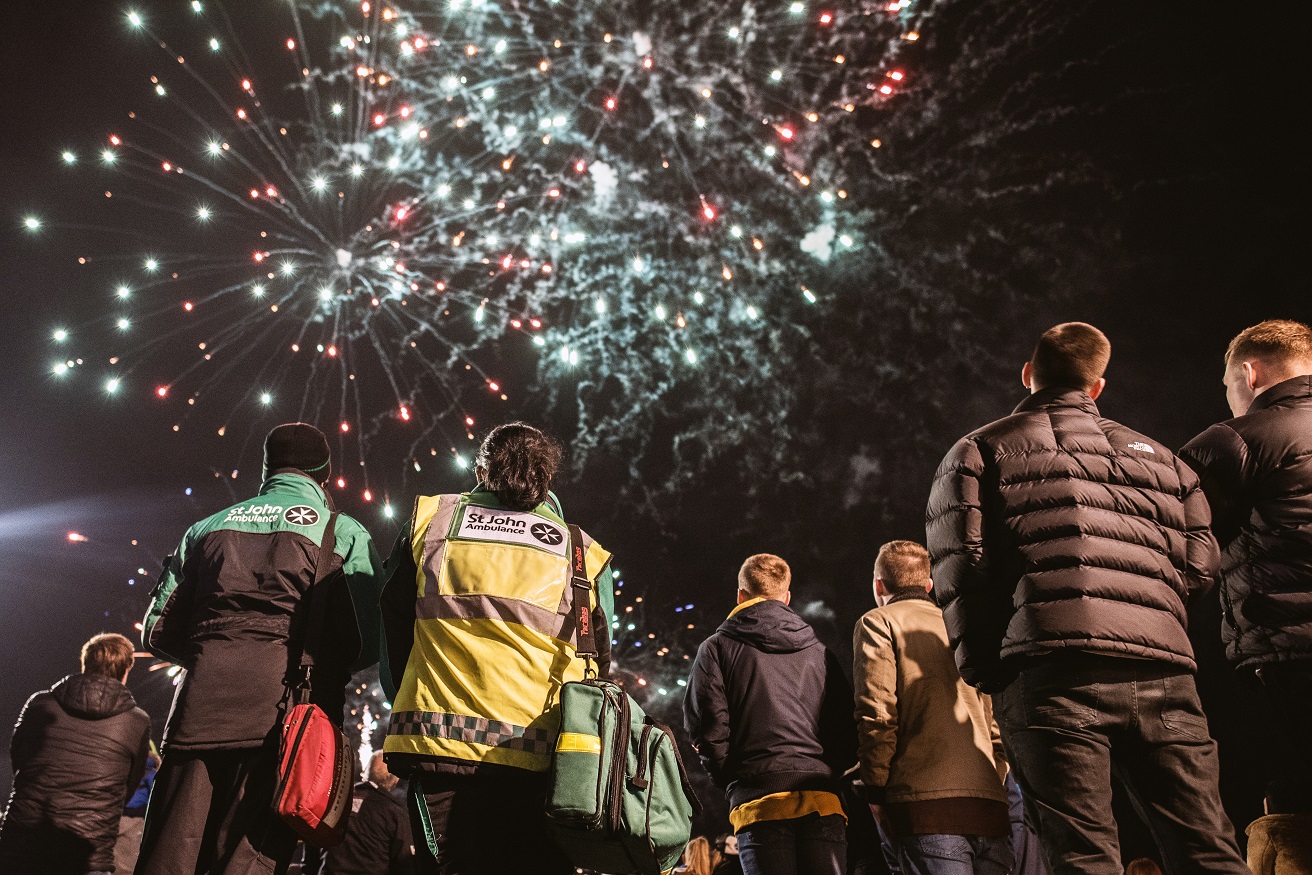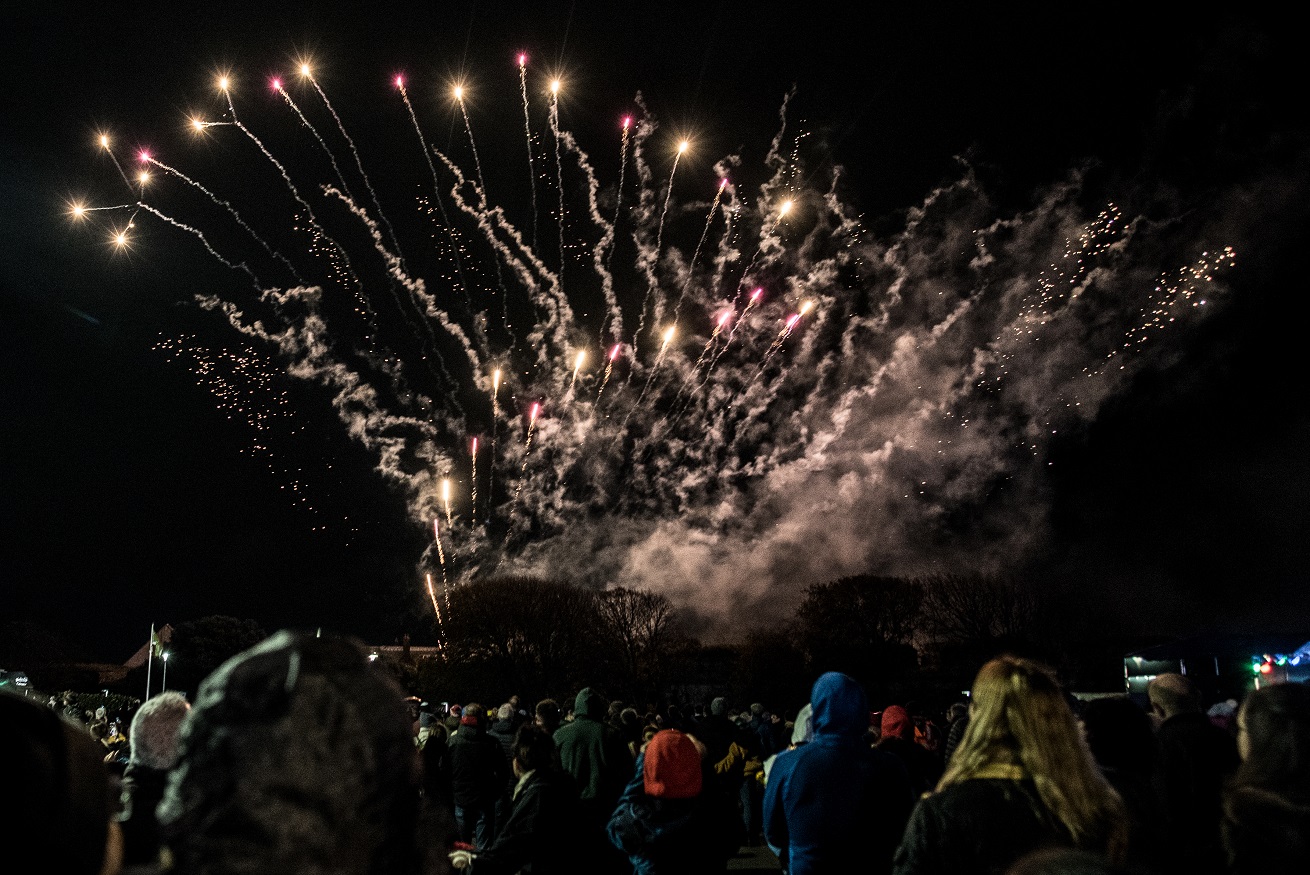17 November, 2020: Top doctors from St John Ambulance and the NHS are encouraging people to be safe with private firework displays this Bonfire Night as the cancellation of public events is expected to spark an increase in shows at home.
People across the country will be celebrating Bonfire Night and Diwali quite differently this year, with polling finding that more than a third (37%) of the public are considering hosting private firework displays.
Ahead of Bonfire Night, England’s most senior GP and St John Ambulance’s medical director are asking people to follow safety instructions on fireworks and familiarise themselves with basic first aid in case something does go wrong, so that these traditional November celebrations continue safely.
According to figures from NHS Digital, there were almost 2,000 occasions of people going to A&E linked to fireworks last year.

Dr Nikki Kanani, Medical Director of Primary Care for NHS England, said: “We know that there are some important festivals coming up, and we want people to be able to enjoy them safely and in line with the government guidance - so we encouraging people to take care while celebrating Diwali and Bonfire Night, if you are arranging firework displays in private gardens.
“Learning basic first aid and knowing what to do if someone suffers an injury, especially in the case of burns where you need to act quickly to cool and cover the area, can be crucial.”
“If you or a family member do need medical advice, you can get expert help from the NHS.uk website, or the NHS 111 phone and online service.”
Dr Lynn Thomas, medical director at St John Ambulance, said: “Normally our highly trained volunteers would be keeping local communities safe at hundreds of public events this week, which have sadly been cancelled because of Covid-19.
“This year, it’s particularly important to know what to do in the event of an emergency. For those celebrating at home, we would urge extreme caution and advise strictly following instructions when handling, lighting and watching fireworks.
“In those unfortunate instances when someone has a minor injury, knowing what to do and acting fast can prevent further harm and relieve suffering. However, in the case of serious injuries, always dial 999.”
Mark Henley, President of the British Association of Plastic, Reconstructive and Aesthetic Surgeons (BAPRAS), said: “Fireworks are serious explosives and accidents can result in extensive trauma to the hands and face, with patients often requiring multiple rounds of complex reconstructive surgery.
“Every year, plastic surgeons witness the life-changing impact of firework injuries, and so we are people to take extreme caution when considering purchasing fireworks for personal use.”
For more information and free, 24/7, non-urgent advice, head to 111.nhs.uk or visit www.sja.org.uk

St John Ambulance’s Firework First Aid
Burns or scalds
If someone’s got a burn or scald:
- Move the person away from the heat
- Place the burn or scald under cool running water for at least 10 minutes
- If the burn is to a young child, larger than your hand, on the face, hands or feet, or is a deep burn, call 999
- Remove jewellery and clothing around the area, unless stuck to the burn
- Cover the burn loosely, lengthways with kitchen film to prevent infection
- Don’t burst blisters or apply creams or lotions
- Monitor and treat for shock if necessary
- Tell them to seek medical advice.
Cinders in the eye
If someone’s got something in their eye:
- Tell them not to rub it, so they don’t make it worse
- Pour clean water over their eye to wash out what’s in there
- If this doesn’t work, try to lift the debris out with a damp corner of a clean tissue
- If this doesn’t work either, don’t touch anything that’s stuck in their eye – cover it with a clean dressing or non-fluffy material
- Then take or send them straight to hospital.
Smoke inhalation
If someone’s inhaled smoke:
- Move them away from the smoke so they can breathe in some fresh air
- Help them sit down in a comfortable position and loosen any tight clothing around their neck to help them breathe normally
- If they don’t recover quickly, call 999/112 for an ambulance.

